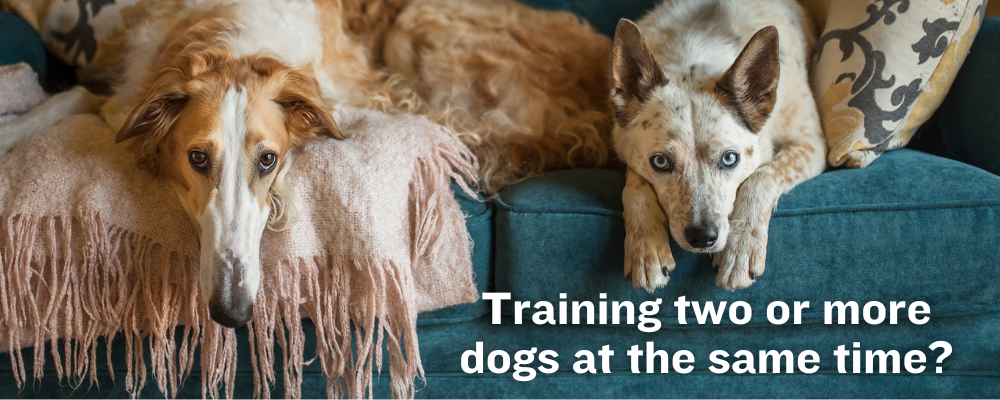The German Shepherd Dogs are large and bold by appearance. Their bark can be intimating to some people. They are also known to have a strong bite force that can take down someone in seconds. That’s why it is not uncommon for German Shepherds to be considered a “dangerous” breed. In fact, GSDs are banned or restricted in some jurisdictions as well as private properties around the world.
German Shepherds can become dangerous and show aggression towards humans, kids or small animals due to fear, stress, threats, the guarding of a resource, natural prey drive, or innate protectiveness. Learning how to read a dog’s body language can keep you safe in most circumstances.
Having said that, a properly trained and socialized German Shepherd raised in a loving home doesn’t pose much of a threat. In this article, we will bust some myths about German Shepherds as a “dangerous” breed. You will learn how to greet and recognize signs of danger when it comes to a GSD.
Dos and Don’ts when encountering an unfamiliar German Shepherd for the first time
While encountering an unfamiliar German Shepherd or any other dog, you must remember to approach them in a way that does not intimidate or startle them.
German Shepherds are well known to be aloof to strangers. While interacting with a GSD, do keep the following points in mind so as to keep yourself and the people around you safe.
Dos
- Let the dog sniff and approach you first
- Ask the owner for permission before petting
- Pet the dog around the chest and neck
- Notice the dog’s body language around you. If he is relaxed and willing to interact (tail relaxed, slightly wagging, ears and facial muscled relaxed), interaction can be initiated
Don’ts
- Don’t come from behind the dog
- Avoid direct eye contact and staring which are signs of intimidation in the dog’s language
- If the dog chooses to back off, don’t force an interaction
- If the dog growls or barks at you, back off slowly, don’t run away
- Don’t intimidate the dog by trying to act tough and dominant
- Don’t approach a dog if he is sleeping or eating
How dangerous can GSDs be?
German Shepherds are large dogs by definition. Their bites force can be as powerful as 238 PSI (pounds per square inch), which means it’s strong enough to break a bone and cause very serious physical injuries. In extreme cases, it could be fatal.
Between 2014 and 2021, there were a total pf 113 reported attacks caused by German Shepherd in the US, of which were 15 fatal. (Source)
Considering the 4.5 million attacks each year, it is rare that you or anyone would be attacked by a GSD.
Unfortunately, German Shepherds, among Pitbull-type breeds and Rottweilers, are responsible for the most “damaging” bites per year, according to American Animal Hospital Association.
Are German Shepherds naturally aggressive?
The short answer to this question would be No.
Having said that, they do have the potential to be aggressive if not trained and socialized to be calm. Then again, isn’t that the case with every dog?
German Shepherds have inherent traits like high vigilance and a natural tendency to guard way more than some other dog breeds. This makes them go over the threshold quicker than a friendly Labrador or a Golden Retriever.
But, if a German Shepherd is raised in a stable environment by experienced owners, their aggression has no reason to surface.
5 Reasons why GSDs have commonly perceived as a dangerous breed
#1 The bold look and built
The German Shepherd may look intimidating primarily due to their body structure, size, color, and facial expressions. A Chihuahua snarling and growling makes for a cute TikTok video these days, but a GSD doing the same thing may probably be deemed as “aggression issues.”
#2 High prey drive and chasing instinct
German Shepherds were bred to herd sheep and livestock. Thus, a large number of GSDs come with an instinct to chase living beings that appear small to them – kids and smaller household pets included.
#3 High guarding instincts
Some dogs have higher guarding instincts than others. Again, the growling and lunging of a 100-pound GSD may be intimidating for most people. And it takes a lot less provocation for a German Shepherd to start guarding their resources because this is an intrinsic breed behavior.
#4 The history of behavioral cases in GSDs
Because of several reasons like being raised by inexperienced owners, without proper obedience training, socialization, physical and mental stimulation, etc, GSDs do appear on headlines as a “dangerous” breed.
#5 Stereotyped as aggressive and ferocious in the media
While there are some amazing dog movies out there, German Shepherds were traditionally showcased to be aggressive and dangerous in several movies and TV shows. This has brought about a biased perception of GSDs in some people’s minds.
You may also like:
Top Movies Featuring German Shepherds [Comedies, Dramas, Wars, Actions and More]
Will German Shepherds attack their owners?
No dog decides to wake up one day and attack out of nowhere. A dog will choose to bite only if he has been repeatedly instigated to do so and if his warning signs have been continuously ignored.
If this aggravation has been caused by the owner time and again, for whatever reason (intentional or unintentional), the dog will bite their owner.
Common causes of GSDs attacking their owners are resource guarding, food aggression, abusive past, touch sensitivity, territorial aggression, etc.
Between 2010 and 2020, there were 21 fatal dog attacks caused by German Shepherds in the US. And 13 of those had the owners or their families killed. The numbers round up to 1.3 cases of German Shepherds killing their owners or their family at home per year. (Will a German Shepherd Dog Attack Its Owner?)
But the thing is, an attack does not mean that the dog is aggressive by nature. It just means that the dog doesn’t know any other way to defend himself or his resources in that situation.
More posts on German Shepherd aggression
- Are German Shepherds Dangerous? Here’s What You Need to Know
- Why Is My German Shepherd Suddenly Aggressive Towards Me?
- Why is My GSD Suddenly Aggressive Towards My Husband?
- Why Is My German Shepherd Aggressive Towards Strangers?
- Will A German Shepherd Attack an Intruder Untrained?
- How To Tell If a German Shepherd Puppy Is Aggressive?
- How to Stop Food Aggression Towards People in German Shepherds?
- Why Do German Shepherds Growl? And What Should I Do About It?
Nature of the dog vs the nurture received by him
The environment of the dog and the people raising him largely decide the personality and behavior of a dog. A well-nurture, even temperament dog is appropriately socialized, well stimulated, comparatively calm, confident in social settings, and usually trained to be gentle or tolerant of kids.
However, if the dog has very strong instinctive behaviors like prey drive, guarding or any other imprinted behavior that he may have learned as an infant, these characteristics make up the nature of the dog. The nature of a dog can seldom be altered.
A German Shepherd’s display of aggression in the presence of certain triggers is the result of the combination of nature and nurture of that dog.
Under what circumstances will a German Shepherd be termed “dangerous?”
When they have developed severe behavioral issues
With a lack of training and constant provocation like snatching things away from your dog, not respecting their boundaries, etc, a German Shepherd can develop severe behavioral issues like resource guarding, reactivity, food aggression, etc. These issues can be still worked with when they are just at their onset. However, if your dog has advanced to biting and attacking without warning, they can be termed “dangerous.”
When they are highly uncomfortable around kids and/or other people
Regardless of the reason for discomfort if your German Shepherd has grown up to be uncomfortable around people and easily spooked by kids, they inevitably become unacceptable in social settings. Constant exposure to a people-fearful/ reactive GSD will result in behavior escalation in no time.
When they are guarding without training
A dog attacking other people to protect a kid is only acceptable if the dog has been trained to do so. If your dog is doing so without training, it is deemed to be a behavioral issue. This protective aggression can easily move on to other things and other people, thereby making your German Shepherd ‘dangerous’ to be lived with.
When they are uncomfortable with other pets in a multi-pet household
If your dog is chasing smaller pets in the house in a playful way, means no harm and does not stress anyone out, by all means, let the chasing continue! But if your dog is chasing your smaller pets to kill/ bite because he has a high prey drive, it is not a good idea for the pets to be living under the same roof and exposed to each other daily.
When they have a previous bite history
Playful bites and nips are a part and parcel of puppyhood. However, if a dog has seriously maimed another living being in the past intending to hurt, and can do so again, that dog is dangerous and should be started on an intensive behavior rehabilitation program under the supervision of an experienced behaviorist ASAP.
How dangerous is too dangerous for a German Shepherd?
If a GSD chooses to exhibit warning signs before biting like growling, snarling, or barking.
However, if a dog is in the red zone, meaning, he can bite to harm without a warning or has bitten before, he is deemed dangerous.
At any given point, a dog will either choose Flight or Fight as a response to a conflict, the first choice always being Flight (running away, avoiding, hiding, etc).
It is only through repeated instances of failed Flight attempts that a dog learns to Fight (growl, bite and attack).
Watch this video to learn more about how dogs react to stressful situations with Flight or Fight and the Freeze
While there could be several triggers causing a German Shepherd to act aggressively, here are the warning signs from a GSD, act wisely and avoid approaching:
- Ears back and whales of eyes exposed
- Hackles up
- Tail tucked under
- Lip licking
- Hiding and avoidance
- Barking
- Snarling
- Growling
What to do when a GSD’s aggression goes out of hand?
If German Shepherd attack you, someone, or a small animal, keep the following points handy:
- Never try to pull away from the dog’s mouth. This will make the dog clench his jaws tighter
- Throw a blanket over the dog’s face as a distraction
- Don’t try to hold the collar, This may redirect to more aggression
- Try to pick up the dog from the hind legs and lift it off the ground.
Final thoughts
It’s heartbreaking to hear someone being attacked by a dog, regardless of the breed. There are several factors at play when a German Shepherd is learning to be aggressive. Some of them are constant provocation, lack of training and socialization, and natural prey drive. German Shepherds Dogs are incredibly versatile dogs and are very sensitive to their environment and the people around them. Once you get to know a GSD, you will be amazed by their loyalty and resilience.
FAQs
1. Are German Shepherds good family dogs?
German Shepherds can make incredible family dogs if they are well socialized early on and caught up with obedience training. They have an excellent temperament around people of all ages and animals of all sizes.
2. Why are German Shepherds so popular?
The German Shepherd’s breed is power-packed with amazing characteristics like loyalty, trainability, courage, confidence, and resilience which are second to none. They have at least one quality that matches almost every aspiring dog owner’s requirement.
3. Are German Shepherds friendly with kids?
A German Shepherd’s friendliness with kids depends on how well he is socialized with kids at an early age and the kind of experiences he’s had with them. It also depends on the dog’s natural drive to be around smaller beings.
4. Are German Shepherds aggressive towards strangers?
German Shepherds have a natural tendency to guard and be territorial which may make them wary of strangers. However, with appropriate training, they can grow up to be as friendly with strangers as any other breed.



